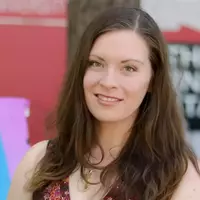Analysis of Critical Features of Informal Science Learning Environments in Michigan
Poster Session Part of
Wednesday
Authors
 Ashley Michael, Eastern Michigan University
Ashley Michael, Eastern Michigan University
 Christine Clark, Eastern Michigan University
Christine Clark, Eastern Michigan University
 Katherine Ryker, University of South Carolina-Columbia
Katherine Ryker, University of South Carolina-Columbia
Museums and other informal science learning environments (ISLEs), like planetariums, have been helping teach the public science for generations, and many provide outreach programs specifically for K-12 audiences. It is realistic to assume that teachers would more frequently choose to use these outreach programs when they have a clear connection to educational standards (e.g. the Next Generation Science Standards, or NGSS) and are relatively easy to implement. Using the theory of planned behavior (Ajzen, 1991), teachers must believe that engaging in museum outreach programs a) will improve student learning and/or interest (e.g. are aligned with state standards), b) are perceived as useful by stakeholders (e.g. parents, fellow teachers, principals), and c) are within their ability to access and implement (e.g. the cost per person, availability of related curricular resources). In order to get a sense of the critical features of outreach programs, we conducted an inductive content analysis of ISLE websites following the general methods outlined in Elo and Kyngäs (2008). The initial sampling frame for this study is of ISLEs in Michigan where the primary emphasis is on the natural sciences. Data collection took place in three stages: generating a list of Michigan ISLEs, reviewing each ISLE's website to identify outreach programs, and iteratively coding the critical features of the program identified by the museum (e.g. length, topic). Here, we present a summary of the key features of outreach programs in Michigan ISLEs. The next phase of this work is to work with Michigan K-12 teachers to understand the most salient features of science museum outreach programs in determining whether or not they would make use of the program.
